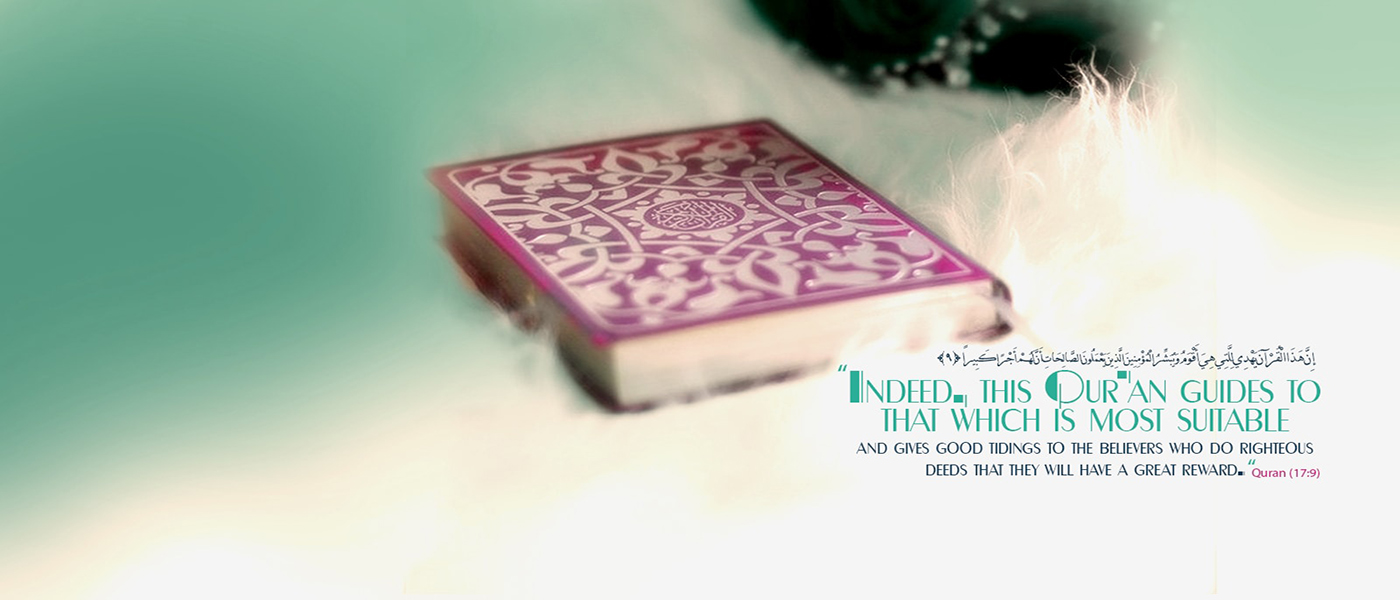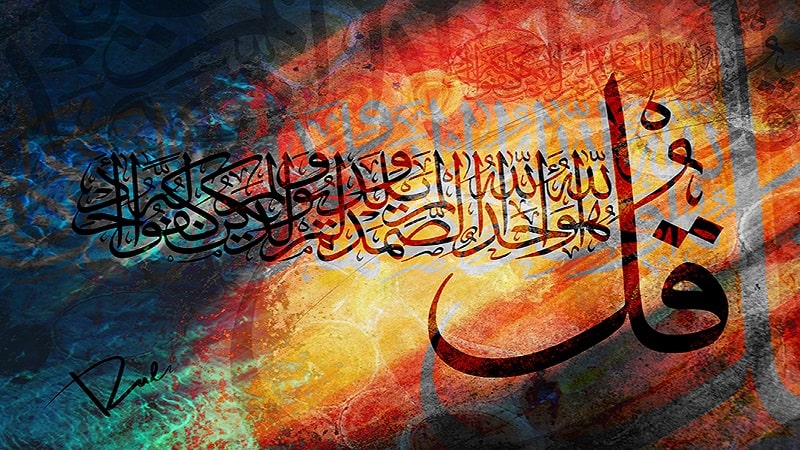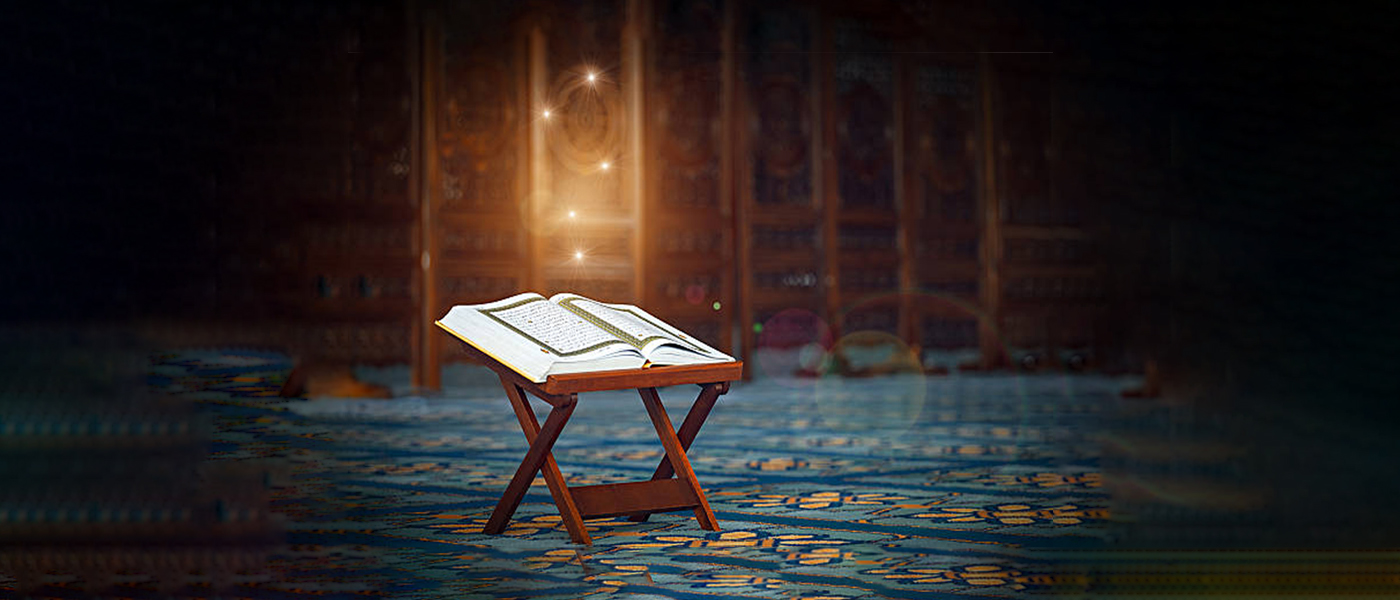

7 Essential Questions Answered about the Holy Quran
The Holy Quran is a record of the exact words of the last revelations from Allah Almighty to Prophet Muhammad (PBUH&HP). Since he was uninstructed (29:48), he recited the words to his companions, who either memorized them or wrote them down. Here are some facts about this divine Book.
1. How Was the Holy Quran Revealed?
The Holy Quran was revealed to Prophet Muhammad (PBUH&HP) through the archangel Gabriel (Jibrail) in two forms [1]: all at once and gradually. The Holy Quran was once revealed on the night of Qadr (Laylat al Qadr): “The month of Ramaḍan is one in which the Quran was sent down” (2:185). Also, it was sent incrementally over 23 years until he passed away, which caused the faithless to object: “Why has not the Quran been sent down to him all at once?” (25:32)
2. Who Turned the Holy Quran into its Written Form?
During the life of Prophet Muhammad (PBUH&HP), the Quran was written on the skin of animals, palm’s wood, and tissue. After Prophet Muhammad (PBUH&HP) demise, there was a need to unify the written texts of the Quran into one specific Arabic dialect and to clarify the reading of the Quran. This happened in the time of the third Caliph, who ordered to collect a unique version of the diacritic the Quran, and other versions were eliminated such that he united the Muslims on one authoritative recension [2]. It should be noted that the actual version of the Quran is the one which was originally collected during the time of the Prophet Muhammad (PBUH&HP) and under his supervision. That is to say, the content of this holy book has remained undistorted since it was first revealed to Prophet Muhammad (PBUH&HP), and only its form and diacritic was unified at the time of the third Caliph. Therefore, the longer surahs are found at the beginning of the Quran and the shorter ones towards the end.
3. What Are the Other Names of the Holy Quran?
The Quran has some other names the most important of which are [3]:
• Al-Kitab, meaning the Book: “This is the Book. There is no doubt about it.” (2:1-2);
• Al-Furqan, meaning the criterion for the right and wrong since it gives Muslims some tools to differentiate between the truth and false, the lawful and unlawful: “Blessed is He who sent down the Criterion (the Furqan) to His servant that he may be a warner to all the nations.” (25:1);
• Al-Dhikr, meaning a reminder because the Quran reminds us of Allah Almighty: “Indeed We have sent down the Reminder, and indeed We will preserve it.” (15:9).
4. What Are the Number of Ayats and Surahs of the Holy Quran?
The Quran is composed of 114 chapters, called "Surahs", and 6236 verses, called "Ayats". It is divided into 30 sections called “Joz’” and 60 sub-sections called “Hizb.” The longest surah is Baqarah and the shortest Kawthar.
5. What Are Different Kinds of Surahs in the Holy Quran?
The surahs of the Holy Quran are divided into two groups: those revealed to Prophet Muhammad (PBUH&HP) when he lived in Mecca, called Makki, and those from after his migration to Medina, called Madani. Generally, the ayats about the Islamic axioms, such as monotheism, prophethood, and afterlife, were revealed in Mecca since the new Muslims required to get fully acquainted with these principles. The ayats about governing the Islamic society, practical principals, and details were revealed in Medina.
6. How Are the Surahs Named?
Every surat of the Quran has a specific title. These titles were known from the time of the Prophet Muhammad (PBUH&HP), and he was the one who introduced these titles initially. The titles were determined to represent the concept and topics discussed in that surat or a priority considered in the Quran about that surat [4].
7. Why and How Should We Respect the Holy Quran?
It is essential to treat the Quran respectfully since it is a divine revelation in every aspect. In this regard, the paper upon which the Quran is written and the Arabic words on its pages should not be touched without having performed ablutions (Wudhu). Moreover, when one is reading the Quran out loud, it is better if the listener keeps silent, listens (7:204), and thinks about the meaning of words.
References:
- M. H. Ma’rifat, “Introduction to the Sciences of the Qur'an,” p. 64, 2000, Tamhid Qom cultural institute, Qom, Iran.
- M. H. Ma’rifat, “Introduction to the Sciences of the Qur'an,” p. 133-136, 2000, Tamhid Qom cultural institute, Qom, Iran.
- Islamiccenter.org/other-names-of-the-quran/
- Hawzah.net/fa/Article/View/97389
Share This Article

4 Points Proving the Quran to Be a Miracle
Prophethood is a sublime status granted only to those who are chosen. A prophet deals with the heart and souls of humans; it is, therefore, a delicate matter to believe in the one who claims prophethood. Hence, there should be a sign that lets people recognize a real prophet from a fake one; that's "miracle." A "miracle" is an extraordinary act or event that no other human, from the first to the last, can perform it or cause it to happen, except a prophet. It can be neither explained by natural or scientific laws. For Prophet Muhammad (PBUH&HP), the Quran is known as an everlasting miracle that is the most outstanding of Prophet's (PBUH&HP) miracles. The question is: why the Quran is considered as a miracle? Let's find out the reasons.
1. The Quran Is Unique in Style and Inimitable
The Quran is revealed with great eloquence and fluency to convey the message. Precise, poetic, targeted, and meaningful terms used in the Quran are such that no weakness of expression can be found in any of its Ayats. In fact, the words are chosen such that they express the desired meaning in the best way possible (Fasaha) with the minimum usage of words (Balaqa). And, these are features that scholars of Arab literature have noticed in every chapter of the Quran [1].
What makes the Quran a miracle in this regard is that, until the present, no one has been able (and no one will be able) to bring even one short Surah similar to that of this holy book. A Surah that could express the highest scientific facts in simple, comprehensible words and describes different aspects of a scientific matter as clearly as possible. This is an issue that has already been addressed in the Quran: "And if you are in doubt concerning what We have sent down to Our servant, then bring a Surah like it, and invoke your helpers besides Allah, should you be truthful." (2:23). There is no historical account of those who succeeded in defeating this claim of the Quran. If there existed any, those who have always challenged the origin of the Quran should have recorded it.
2. The Quran has been Brought by a Prophet Who Was Uninstructed (Ummi)
According to both historical records and the Quran, Prophet Muhammad (PBUH&HP) was Ummi before he was chosen as a messenger of Allah Almighty; he hadn't been taught by any teacher to read and write 1]. "You were not able to read or write before the Quran was revealed to you; however, the followers of falsehood would have tried to confuse the matter" (29:48). Therefore, the Quran that its words are in extreme eloquence and fluency and reveal sophisticated concepts cannot be Prophet's (PBUH&HP) word. Hence, it is a divine work gained through revelation, a "miracle."
3. Scientific Facts Revealed by the Quran
The Quran is not a book of science or a specialized book, nor has it aimed to concentrate on scientific facts. However, these kinds of information are stated in the Quran to demonstrate the wonders of creation and Allah Almighty's glory.
In this regard, the creation of humans is described in detail in the Quran (23:12-14). In the first step, the human being was fashioned from clay. Other measures include the creation of man from spurting water, a drop of semen, the sperm fashioned into an embryo, this embryo fashioned into a shapeless lump of flesh. From the lump of flesh, fashioned bones, clothed the bones with flesh and then created the consanguinity and affinity [2].
The movement of the earth is another fact mentioned in the Quran: "It is Allah who raised the heavens without any pillars that you see" (13:2). In this verse, it is mentioned that there exist invisible supports that raise up the heavens. These supports are now referred to as the gravitational and other unseen forces in the universe. This scientific fact that is valid today was unknown in that era, and even one thousand years later when Galileo explained this fact and was sentenced to death. That's why it is not explicitly stated in the Quran; otherwise, it would have been banned [1].

4. Accurate Predictions
Some accurate predictions are among the verses of the Quran. This proves that it has been descended from an absolutely knowing source that can report the unseen.
As an example, in the time of Prophet Muhammad (PBUH&HP), Mecca was controlled by polytheists for a while. They did not let Muslims enter the city and do the Hajj rituals. Then, Prophet (PBUH&HP) dreamed that he succeeded in performing Hajj with his companions. This was confirmed in an Ayah: "Certainly Allah has fulfilled His Apostle's vision in all truth: You will surely enter the Sacred Mosque, God willing, in safety, with your heads shaven or hair cropped, without any fear." (48:27). In the next year, this dream came true.
In another case, the Quran has predicted that: "Byzantium has been vanquished in a nearby territory, but following their defeat, they will be victors in a few years." (30: 2-4). Some years later, both predictions came true.
From what has been discussed above, it can be deduced that the Quran cannot be written by a human being. It is undoubtedly from a superior all-knowing all-wise source, which is Allah Almighty. Consequently, the Quran can be considered as one of Prophet Muhammad's (PBUH&HP) miracles, the greatest one, of course.
References:
- Quran
- H. El-Ramady, et al., "Soils and Human Creation in the Holy Quran from the Point of View of Soil Science," Env. Biodiv. Soil Security, vol. 3, pp. 1- 9, (2019).
Read More

12 Scientific Facts in The Quran Discovered Centuries Later: Part 2
In the first part of this article on the scientific facts in the Quran, some astronomical facts mentioned were discussed. Here, we review some interesting facts about nature, including some points about mountains, the origin of life, the position of the sky and the seas merging together.
5. Mountains with Deep Roots under the Ground
The Quran has used the word stakes to describe mountains: “It is He who has spread out the earth and set in it firm mountains” (13:3), “Did We not make the earth a resting place? and the mountains stakes?” (78:6-7). It means that mountains have deep roots under the ground surface. Mountains do have deep roots, and the word stakes is an accurate description for them. This fact was discovered only in the latter half of the 19th century. The presence of the mountains on the ground also helps to stabilize the crust of the earth [4]. They also hinder the earth-shaking. “He cast in the earth firm mountains lest it should shake with you” (16:15). This is known today under the theory of plate tectonics since the late 1960s [1].
6. The Origin of Life according to the Quran
Life of a human being starts in water. From conception to birth, a fetus is protected and cushioned in a sack of water. A human body needs water in all its cells, organs, and tissues to help regulate its temperature and maintain other bodily functions. Plants also need enough hydration to perform photosynthesis, while animals consume water to carry out cell activity. Overall, water is an essential element for all living beings on earth. This fact was discovered only after the invention of the microscope. Now we know that all living things are made up of cells which are mostly made up of water. This fact has already been stated in the Quran: “We made every living thing out of water? Will they not then have faith?” (21:30).
7. The Sky as the Protector of the Earth
The sky plays several essential roles as the protector of the earth, such as filtering out the lethal rays of the sun. If there were no sky, the sun’s radiations would have killed off all life on earth. The sky also acts as a blanket around the earth, which protects the living things from freezing out by the cold just above the sky that is approximately -270°C. The greenhouse effect is another role that the sky plays. By warming the surface of the earth by means of heat retention, the sky reduces temperature extremes between day and night [2]. These protective roles of the sky were discovered by scientists in the 20th century. The Quran has mentioned this role of the sky as: “We made the sky a preserved roof and yet they are disregardful of its signs.” (21:32).
8. Where the Seas Meet
It has been discovered by the scientists that there is a barrier between the two different seas that meet. Hence, each of the seas has its own temperature, salinity, and density, like the Mediterranean Sea and Atlantic Ocean water. Despite large waves, strong currents, and tides in these seas, they neither mix nor do they transgress this barrier [3]. This phenomenon has been mentioned in the Quran as: “He merged the two seas, meeting each other. There is a barrier between them which they do not overstep.” (55:19-20). There is also a case where fresh (sweet) and saltwater meet. Here, the Quran talks about the existence of a forbidding partition along with the barrier: “It is He who merged the two seas: this one sweet and agreeable, and that one briny and bitter, and between the two He set a barrier and a forbidding hindrance.” (25:53). Modern science has discovered that in estuaries, where fresh and saltwater meet, there is a marked density discontinuity that separates the two layers. The salinity of this zone of separation (partition) is different from that of freshwater and that of saltwater. There is, therefore, the division of water in estuaries into three parts: freshwater, saltwater, and the partition [3].
Follow us on the last part of this topic to find out what the Quran has revealed about human embryonic development, clouds, and deep seas, and the creation of everything in pairs.
References:
Read More

